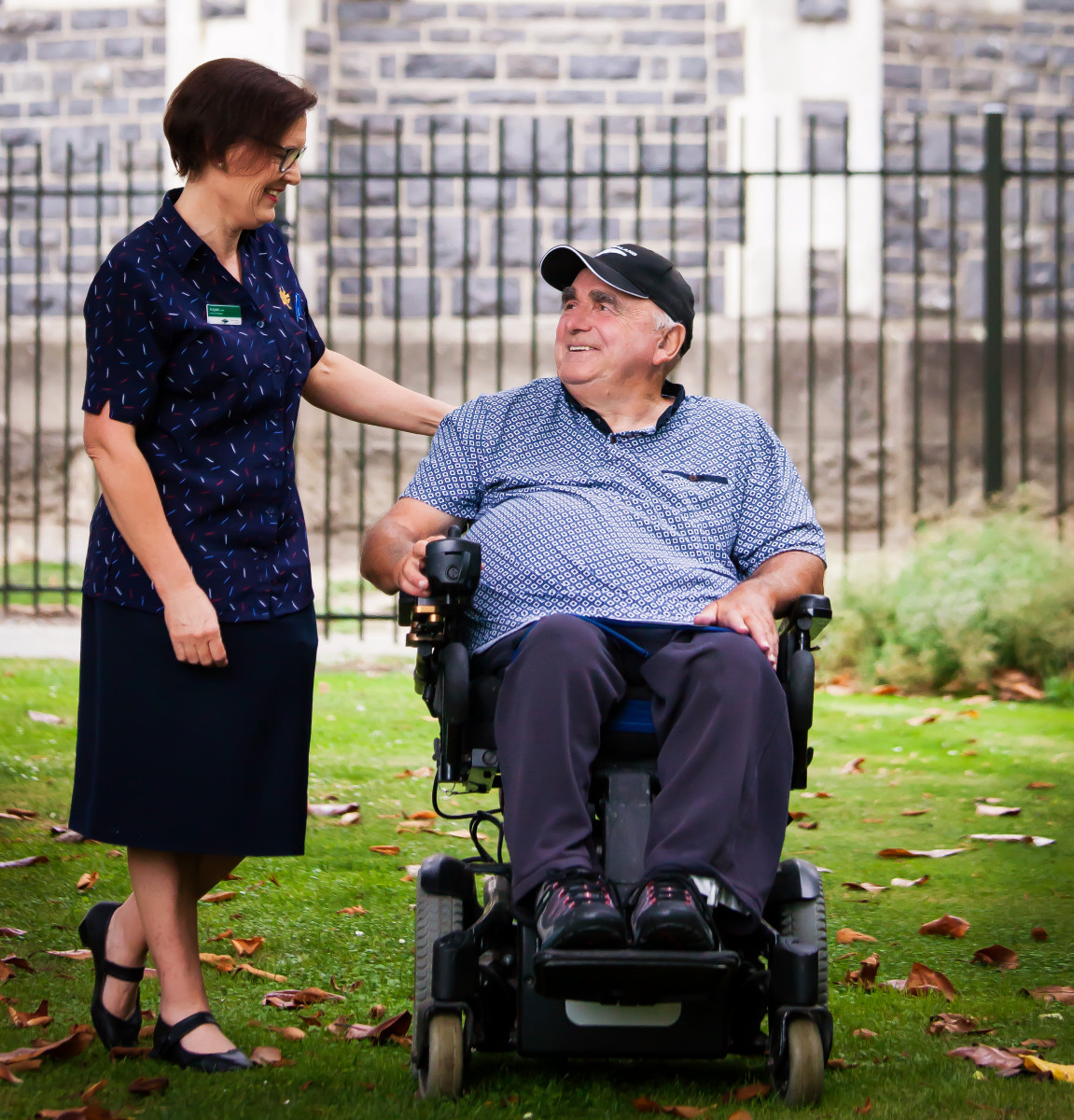Caregivers Helping an Aging Loved One by Health Promotion
What is Health Promotion?
Health promotion means making positive contributions to your family member's health by looking at the patient as a whole rather than focusing on disease.
Being a caregiver means more than ticking off a list of tasks. Caregiving is supporting them in meeting all of their needs.
Promoting Health
When someone is sick, we often focus on restorative therapies or cures to treat the illness. It is essential to focus on the whole person and the ways that we can improve their quality of life. By focusing on these positive aspects, you can improve your client's health and overall wellness.
Caregivers should provide care for the entire client by focusing on:
-
Physical health
-
Intellectual well-being
-
Psychological support
-
Social interaction
-
Emotional needs
-
Spiritual care

Physical Health
Focusing on a client's physical health may seem to consume most of your time. However, we are going to take a different look at what physical health means. Focus on the positive aspects of physical health and encourage those behaviors.
Physical health promotion includes:
- Getting regular hearing and vision tests
- Attending annual physical wellness checks
- Incorporating a healthy diet with plenty of fruits, vegetables, and lean protein
- A physical fitness routine that includes thirty minutes of moderate activity at least three times per week.
- Drinking plenty of fluids (almost half of your body weight in pounds per day)
Intellectual Well-being
There are many ways to improve your client's intellectual well-being is to offer mentally stimulating activities that further his or her education.
You can provide intellectual experiences such as:
- Learning experiences like guitar or piano lessons, community classes, or cooking experiences.
- Scheduling field trips to interesting locations like history museums, art galleries, musical performances, the zoo, and plays
- Lectures or meetings with experts in their fields like artists, musicians, professors, or politicians
- A library of books, music, and movies.
Psychological Support
Self-determination theory says that people have three basic psychological needs:
- Autonomy: the ability to act on your own accord with an actual choice
- Competence: feeling proficient in your environment
- Relatedness: forming relationships in which you feel valued
As a caregiver, you can promote mental health in many ways, like encouraging regular screening, assisting with appropriate therapy services, and engaging in support groups.
Social Interaction
Encouraging social interaction is an important aspect of health. Focus on social health by:
- Engaging with your loved one by conversing with them instead of talking at them.
- Participating in social group activities by setting up membership with a church, senior center, or community center.
- Maintaining relationships with family and friendships.
Emotional Needs
Empathy is everything. Empathy is putting yourself in another person’s shoes. By looking at a situation from another’s point of view, you can identify the thoughts or feelings that your loved one is experiencing.
Empathy means that you are aware of any communication barriers based on their situation. Supporting his or her emotional needs provides security and connection on a larger scale. It ensures that your loved one is living a meaningful life.
To meet your aging loved one's emotional needs, identify and prioritize demands, provide support, and encourage opportunities to promote feelings of acceptance and competence. People thrive when they feel cared about and listened to!
Spiritual Care
If your loved one placed focuses on their spirituality, try to maintain their spiritual care by encouraging attendance at their place of worship. Some clients benefit from maintaining spirituality by practicing meditation or yoga. Spirituality is important to holistic health.
Conclusion
Aging is a journey. However, by providing a rich assortment of engaging activities and relationships, you will increase the quality of life of your client. Offering physical, mental, emotional, and spiritual care will promote health, mental sharpness, and give them a more abundant life!








